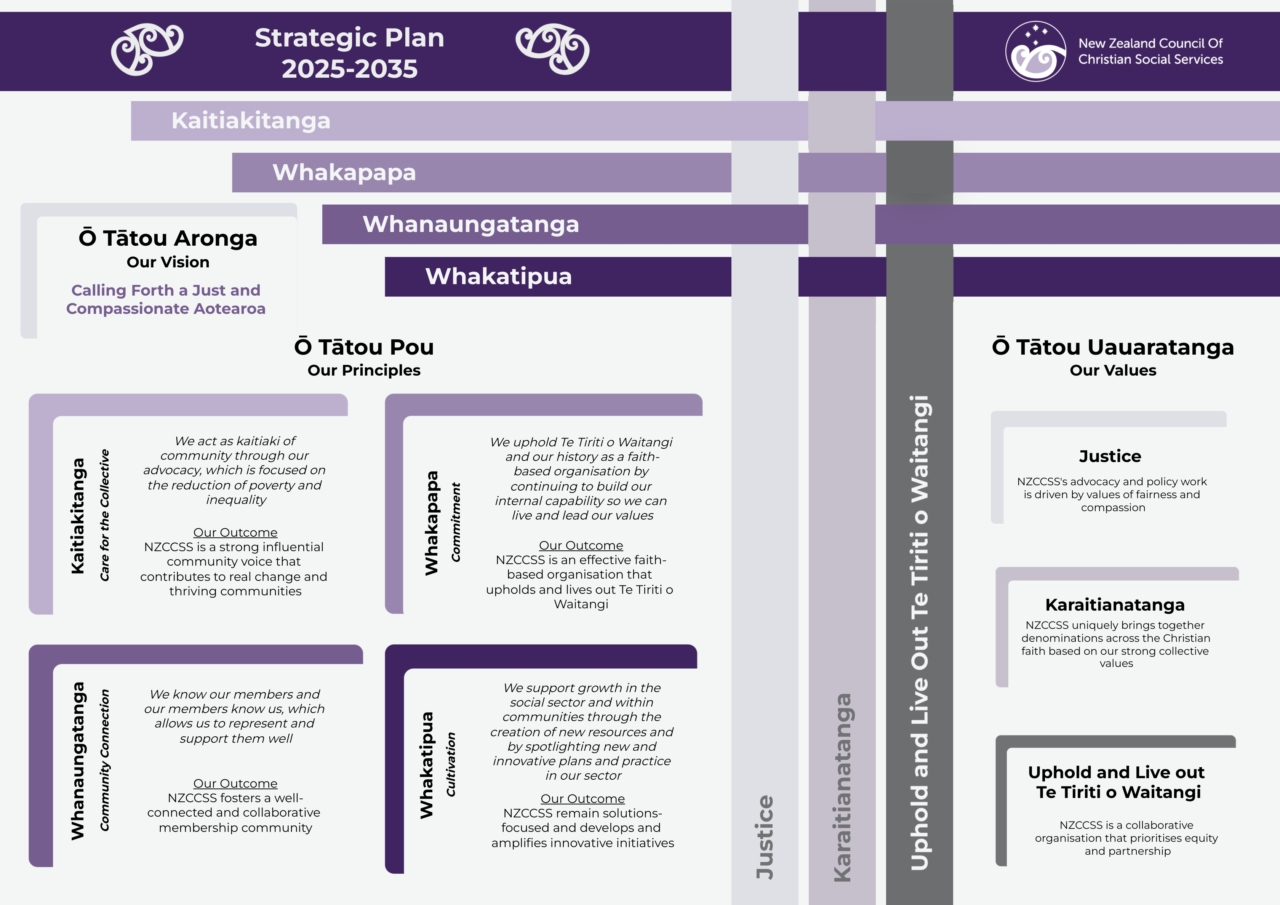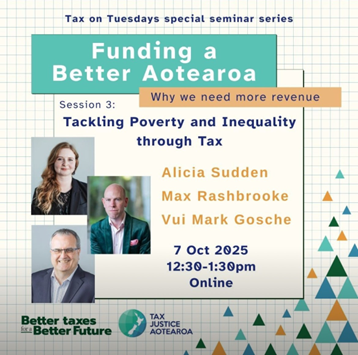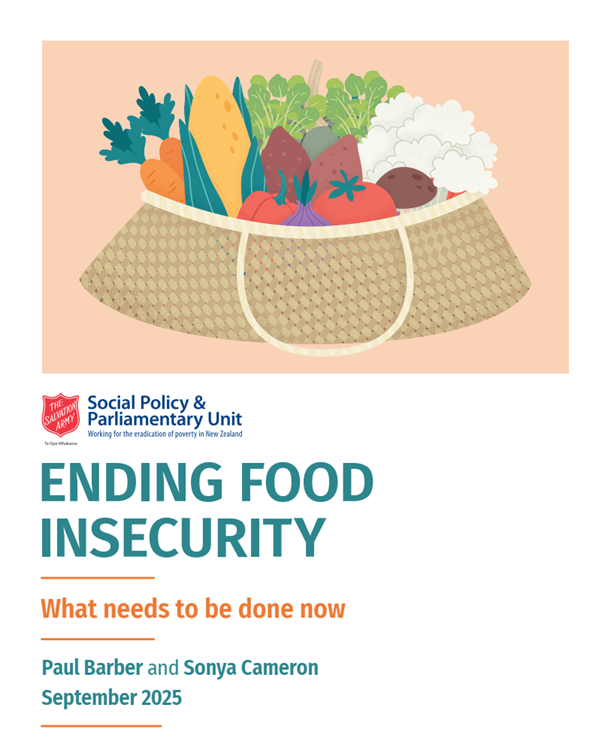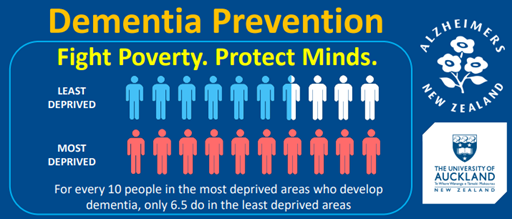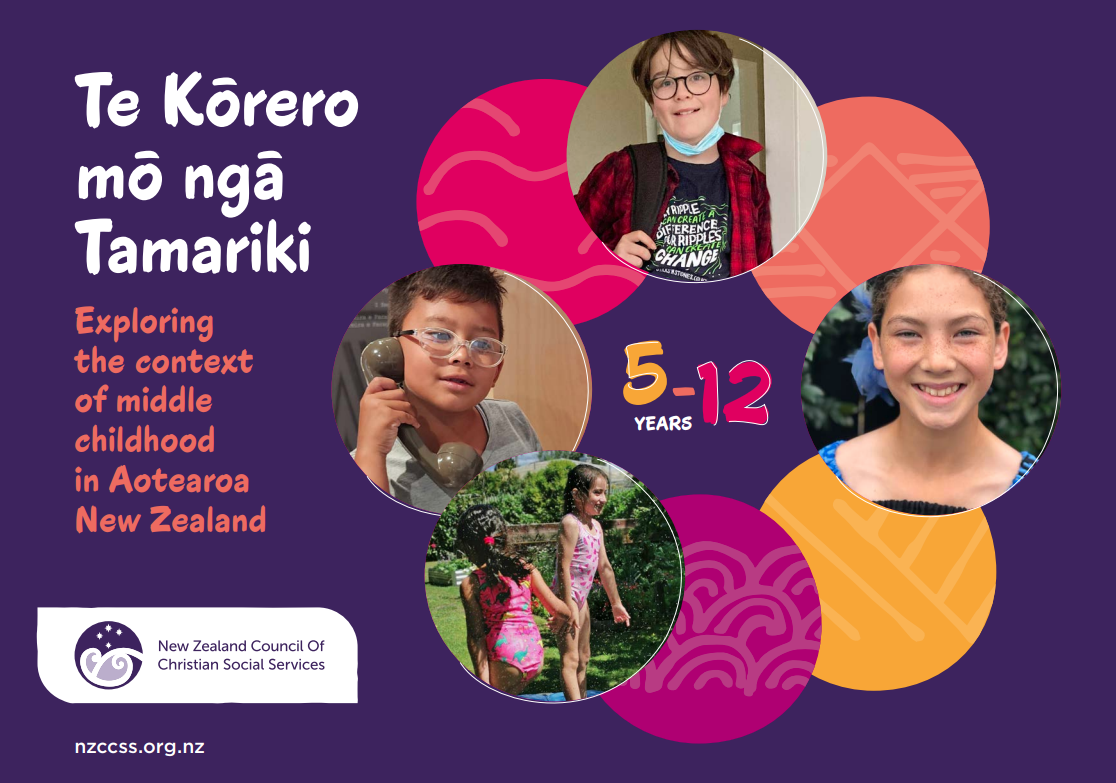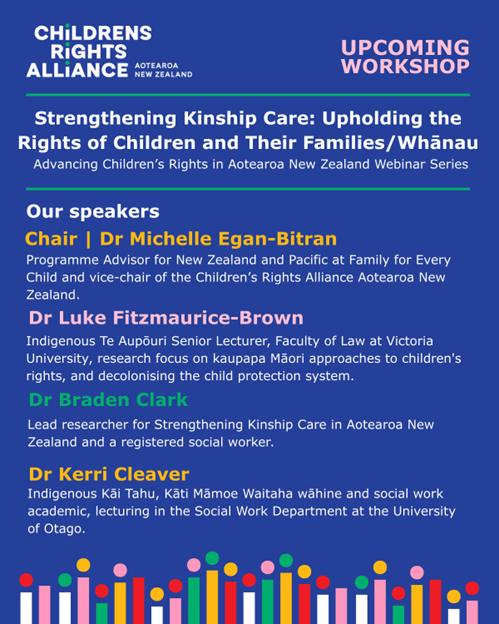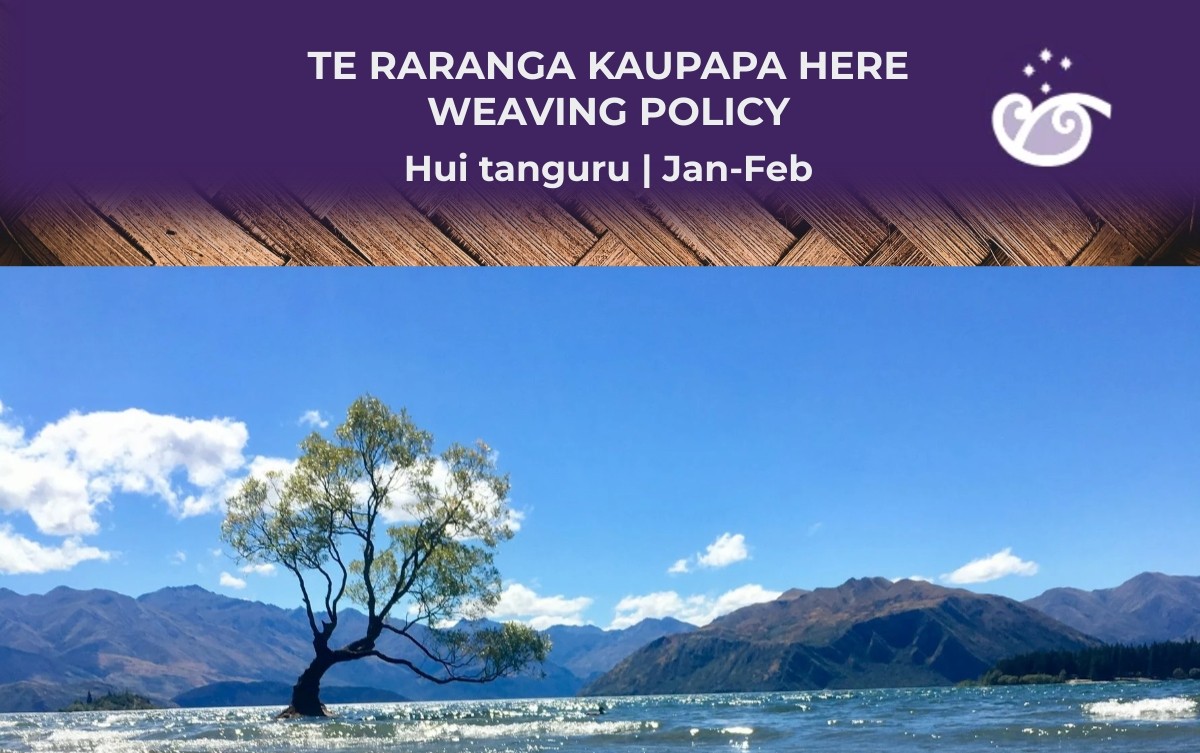You can jump to the section most relevant to your work:
- Tō Tātou Rāngai | Our Sector
- Tō Tātou Whakauru | Our Membership
- Ōritetanga me te whakaurunga | Equity & Inclusion
- Kaumātua | Older People
- Tamariki | Children

Mō ake tonu te reo
Alongside many other organisations, faith communities and New Zealanders, the New Zealand Council of Christian Social Services (NZCCSS) joined in the celebrations of the 50th anniversary of Te Wiki o te Reo Māori (Māori Language Week). We support the kaupapa to revitalise and protect te reo Māori.
For NZCCSS, this is an important way to affirm one of our organisational values: to uphold and live out Te Tiriti o Waitangi. This means we will continue to prioritise equity and partnership in our work. This value is one of three core values which has been embedded through our 10 year strategic plan. The others are justice and karaitianatanga (our cross-denominational faith).
Through our strategic plan we continue our vision to call forth a just and compassionate Aotearoa with the guidance of four pou.
You can see how these four pou have shaped our work plan for 2025/2026 here.
We welcome any feedback or thoughts from our members or others on our strategy and annual plan. Please email Alicia on [email protected].
Social Service Conference: Whakamanawa 2025
NZCCSS CEO Alicia Sudden and Senior Policy Analyst Melanie Wilson attended the Te Pae Ora | SSPA Whakamanawa Conference in Rotorua on 10 & 11 September, with Melanie presenting a workshop session on our resource Te Kōrero mō ngā Tamariki – Exploring middle childhood in Aotearoa (see more about this here). It was wonderful to see the interest in this stage of children’s lives and observations shared by those attending the presentation.
Highlights of the conference included:
- Qiane Matata-Sipu’s keynote exploring indigeneous rights and wellbeing, story sovereignty and standing in your own identity.
- Exploring the Tangata Tiriti Journey with Dr Nicola Atwool – a chance to hear and contribute diverse experiences relating to recognising and upholding Te Tiriti among non-Māori.
- Tamariki Tū, Tamariki Ora: Learning from Dr Nikki Barrett’s presentation on this co-designed model of care pathway which responds to the real needs of tamariki Māori and thei whānau.
- Hearing from government Ministers and officials regarding their aspirations for improving the wellbeing of tamariki and whānau across Aotearoa.
NZCCSS would like to express our thanks to the Te Pae Ora | SSPA team for a challenging and inspiring couple of days. We really appreciated the opportunity to learn, share and connect with others in the sector.
Online panel: Tackling poverty and inequality through tax
Join our CEO Alicia Sudden, alongside Max Rashbrooke and Vui Mark Gosche, for an upcoming panel exploring why Aotearoa needs more tax revenue.
Alicia will be discussing the role of the welfare system, how it has changed over time and what opportunities there are for a better system of social support.
Tuesday 7 October, 12.30pm-1.30pm
Register here

Doors to Dignity Campaign Launch- Christchurch Methodist Mission
Christchurch Methodist Mission has just launched their campaign Doors To Dignity: a nationwide initiative focused on addressing the older persons housing crisis head-on.
Through advocacy, collaboration, and community engagement, they are working to ensure all older New Zealanders can live with security, dignity, and peace of mind in their later years. Our CEO, Alicia Sudden, was at their launch event which included a creative and powerful photo exhibition.
Join them for an upcoming panel discussion in Ōtautahi Christchurch to discuss solutions.
Register here
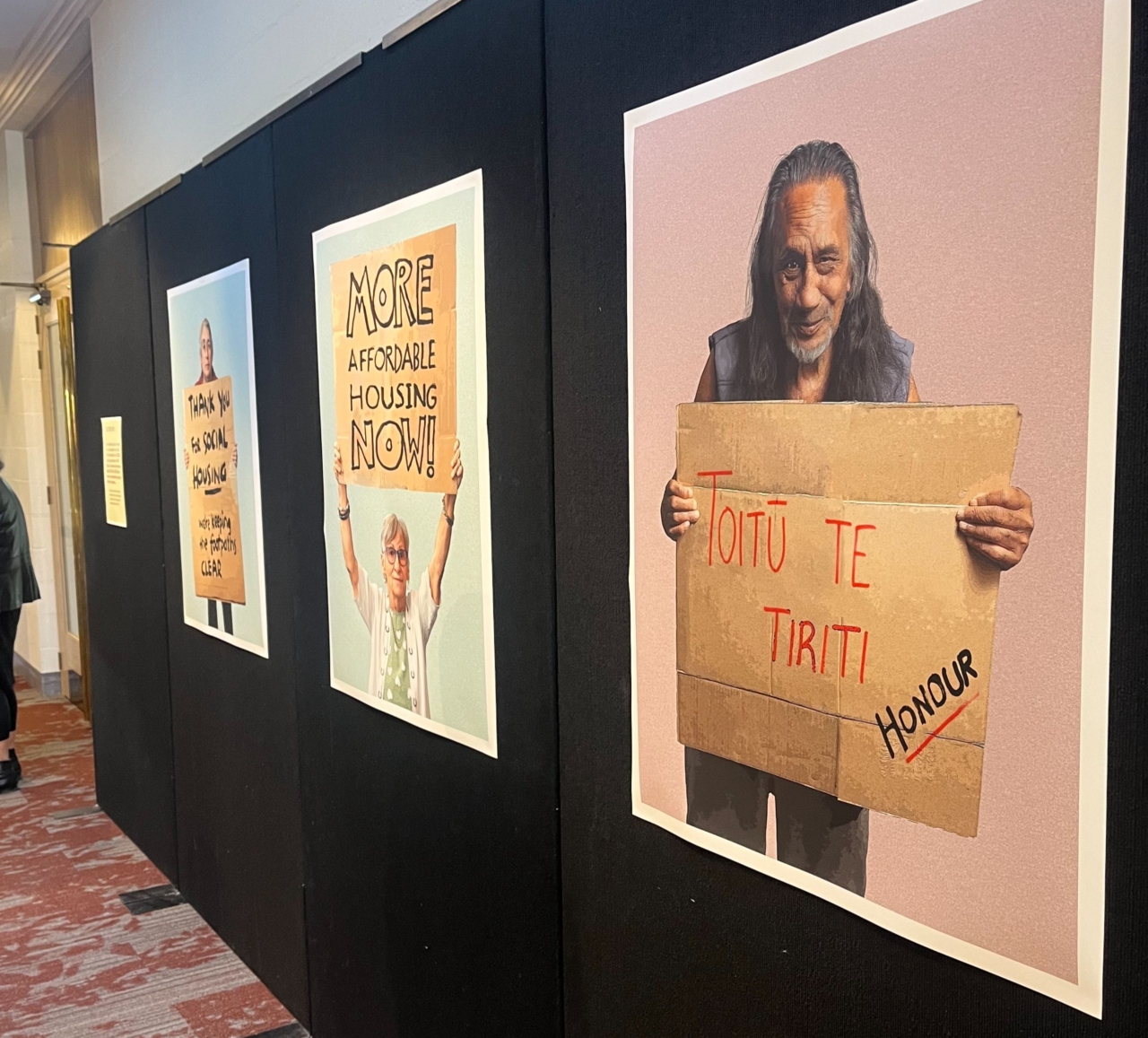
Ending Food Insecurity – Salvation Army report
Food insecurity in households with children has almost doubled in the two years to June 2024, with 27% of children currently living in households that run out of food sometimes or often. Māori and Pacific peoples households with children are disproportionately affected with 35% and over 50% of these households experiencing food insecurity respectively. This is despite New Zealand producing enough to annually export food to feed 40 million people.
The Salvation Army has recently released their Ending Food Insecurity – what needs to be done now report. The report summaries the extent of food insecurity problems currently faced by New Zealanders and lays out possible solutions to provide both immediate relief and long-term solutions through system reforms.
In 2022 the Commerce Commission identified a lack of competition in the grocery sector as a key contributor to food insecurity, a problem which still persists and for which no change is expected in the next decade.
The report proposes a number of possible solutions to improve food security in Aotearoa including:
- Expanding the role of Grocery Commissioner to Food Commissioner to support competition and diversify the food supply and grocery sector
- Developing a National Food Strategy which upholds Te Tiriti and prioritises health and wellbeing of people and the environment
- Funding for upscaling community initiatives like the Community Food Security Initiatives and creating disaster resilient food support networks
- Resourcing hardship grants for immediate needs to ensure adequate income regardless of employment status
Chaplains and spiritual care practitioners needed!
A study being co-led by Associate Profession Richard Egan (University of Otago) and Professor Moana Waitoki (Waikato University) is calling on wairua/spiritual care experts and chaplains working in healthcare about their views, needs, experiences and aspirations for spiritual care in Aotearoa.
To contribute to this important work, contact Dr Egan at [email protected] by 15 October to register for their survey.
Follow the QR code below, or click here, to read more about this workstream.

Social cohesion report
The recently released Social Cohesion Report by the Ministry of Social Development (MSD) provides an update on indicators included in the Te Korowai Whetū Social Cohesion measurement framework. It highlights the continued inequities faced by some population groups in Aotearoa. Of note 22% of Europeans reported they put up with being cold to save costs, compared with 49.4% of Pacific peoples, 36.5% of Māori and 41.7% of Asian individuals in 2023.
The data provided in this report is pooled from a number of government surveys with the latest collected in 2023. All population groups reported a decline in income adequacy between 2021 and 2023, but with a most significant drop in disabled people with 61.7% reporting income adequacy in 2021 compared with 44.2% in 2023.
With the increased costs of living, including a substantial rise in power costs since these data were obtained, it is likely that these figures will show further declines in the next rendition of this report.
Supporting rough sleepers
On 5 September the Government announced 5 actions they would be taking to provide additional support for people sleeping rough. These actions included:
- $7 million to provide 300 additional social houses in the Housing First Programme
- up to $10 million in additional funding in the current financial year to established services that support rough sleepers
- Changes to transitional housing places to ensure these are in areas of highest need
- Introducing assessments to redirect accommodation costs directly from benefits
- MSD staff to use “greater discretion” for Emergency Housing (EH) grants
Although additional supports for rough sleepers are welcomed, it is unclear how much short-term benefit these changes will have.
The government has made it clear it will not change eligibility criteria for EH or lift targets to reduce its use. Although many of our member organisations have expressed concerns around the suitability of EH, all have echoed an immediate need for support for individuals without housing or where available housing is inadequate. The proposed actions do little to address this in the immediate future and so far there is no evidence that MSD staff discretion “…us[ing] their good judgement and common sense…” is making any real difference to EH application declines.
Big Tech, Little Tax report
Better Taxes for a Better Future and Tax Justice Aotearoa have released their Big Tech, Little Tax report exploring recent research into large multi-national tech companies that make billions in profit in New Zealand while paying very little in tax, effectively costing the country hundreds of millions in tax revenue. This report highlights specific examples and makes recommendations of practical steps the government could consider to prevent this practice continuing and ensure that these organisations pay their fair share of tax.
Social Investment Fund: Contract consolidation
Pathway 2: Contract Consolidation opened on 1 September. This pathway is designed to simplify how social sector and community organisations with multiple funding contracts, both within and across government agencies, manage these contracts by combining them into one contract administered by the Social Investment Agency.
Submissions close at 5pm on 13 October. Outcomes are expected by March 2026, with contracts beginning in July 2026.
More information about this pathway including application guides and the assessment framework can be found here
Webinar: Person-centric cancer care
Health Services Research Assoc. Au/NZ (HSRAANZ) invites you to a talk titled “Enhancing person-centric advance care planning with people from culturally and linguistically diverse backgrounds, affected by cancer”
Thursday 23 October, 2:00pm to 3:00pm
Zoom: https://vuw.zoom.us/j/98053536072
Presenter Dr Ashfaq Chauhan (PhD) is a research fellow and co-ordinator of the Healthcare Engagement and Equity Research stream within the Centre for Health Systems and Safety Research at the Australian Institute of Health Innovation based at Macquarie University. He is a physiotherapist by background with over a decade of clinical experience in the Australian healthcare system with training in health management and public health.
Find out more here.
NZCCSS on MSD Partner Advisory Group
On 24 November MSD is changing the way they manage contracts and procures services. While the changes will have an impact on their external partners the aim is to improve processes to make it easier to work together. To help make this as smooth a transition as possible, NZCCSS CEO Alicia Sudden has been asked to be part of their External Partner Advisory Group.
The Group’s role is to offer advice from a partner’s point of view on the best way for MSD to engage with their partners and to ensure you get the guidance and support you need to successfully manage your way through the change period. This will include providing feedback and working through any concerns raised.
If you have any feedback to share please feel free to get in contact with Alicia directly at [email protected]

Retirement Commissioner announces resignation
New Zealand’s Retirement Commissioner, Jane Wrightson, has announced that she will not be seeking reappointment to the role when her second term concludes early next year. Over her time at the Commission, she has successfully advocated for many policy changes that pave the way to a better retirement for Kiwis. You can read more about her announcement and her successes here.
Bringing the attention to Alzheimer’s
This month our CEO Alicia Sudden was invited to be part of the two-day Alzheimer’s Summit ‘Solving the Dementia Challenge’. This event brought together sector leaders, providers, carers and those living with Dementia Mate Wareware to connect, share and collaborate. We heard directly from those living with Dementia Mate Wareware about what they want for their lives and wellbeing, as well as from family carers about what was needed to support their caring.
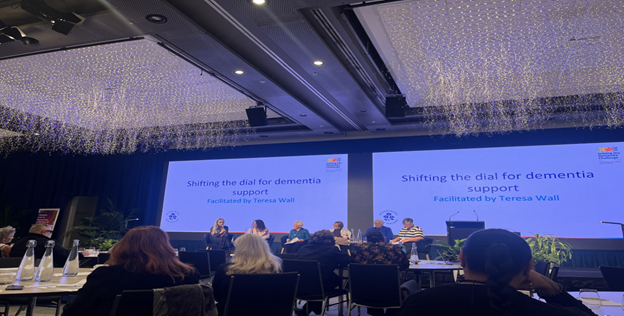
Building on these experiences and insights, Alzheimers New Zealand launched their refreshed Dementia Mate Wareware Action Plan. They also released infographics to easily share information about Dementia Mate Wareware in Aotearoa.
Feedback completed on Older Persons Poverty Monitor
Throughout August and September we engaged across the members, sector, and beyond on our plans for the Older Persons Poverty Monitor, with every element of our proposed monitoring framework up for discussion. Through webinars, emails, online surveys and in-person engagements, we collected thoughtful and engaged feedback.
These responses have been thematically analysed and the discussion is soon to be available on our website. The document will include not only what people told us about the monitor, but how their feedback will change our next steps. We are so excited to bring this project to life now we can be sure it aligns with the priorities of our membership, sector, and kaumātua.
Rauawaawa Kaumātua Charitable Trust Olympics 2025
Part of our engagement for the Older Persons Poverty Monitor was an invitation from the Rauawaawa Kaumātua Charitable Trust to attend their 2025 Kaumātua Olympics to engage directly with kaumātua on our project. With 400 kaumātua from across Te Ika-a-Māui to compete in the games, it was an amazing opportunity to discuss what is important to older people themselves when discussing poverty.
We had two activities – a whiteboard with a prompt asking people what they felt Older Persons Poverty was, and a voting system to ask people what they thought it was important for us to measure in our work. Outside these more formal feedback mechanisms, we had countless discussions with kaumātua across the day, hearing from them on a personal level about how poverty is seen and how it impacts them.
An enormous thank you to the Rauawaawa Team for trusting us to come and share our work with these kaumātua.
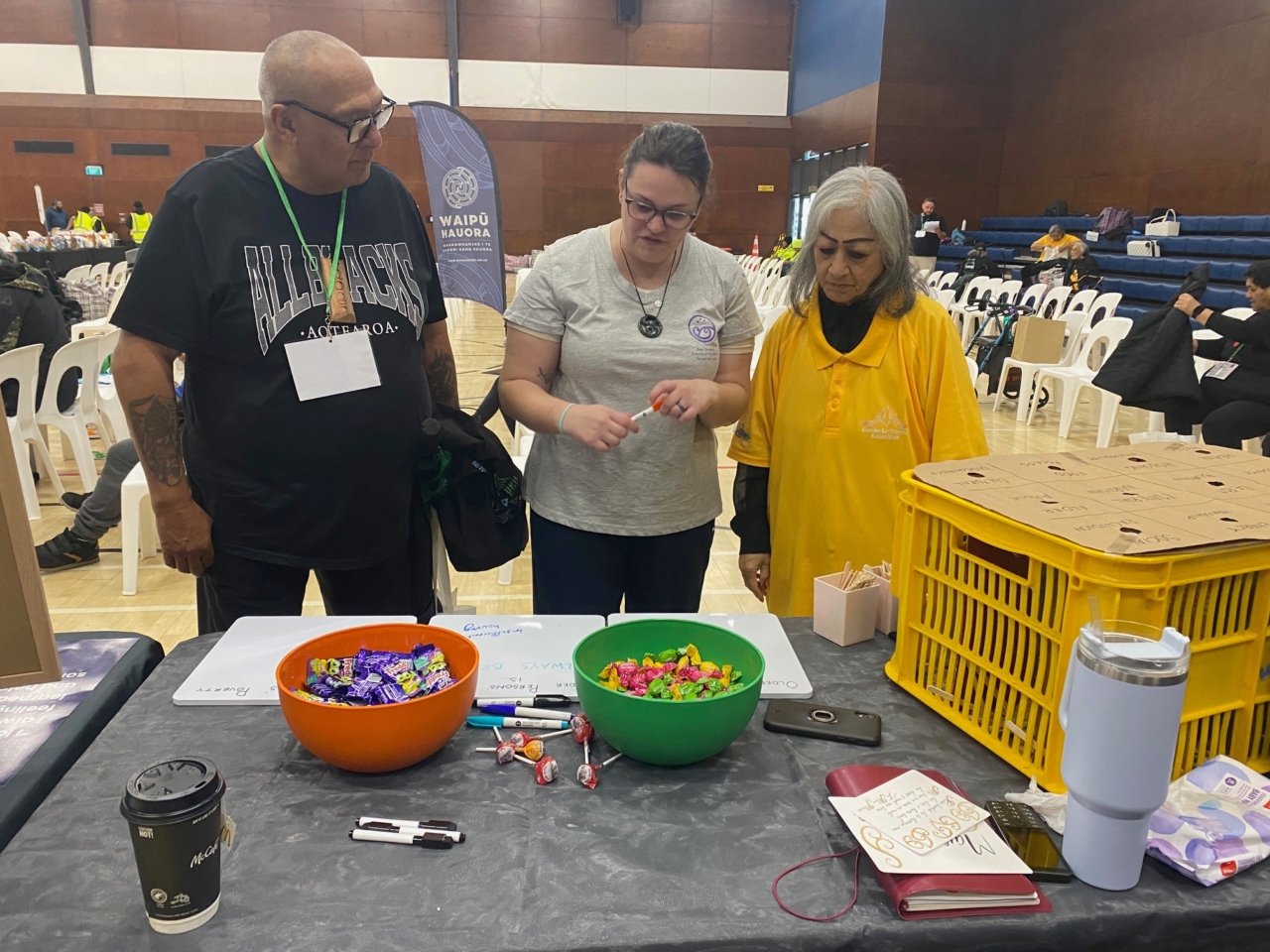
| NZCCSS Senior Policy Analyst Rachel Mackay getting feedback from kaumātua on Older Persons Poverty at the Rauawaawa Kaumātua Olympics in Hamilton this September. |
Farewell to Peter Glensor
Wesley Community Action Board Chair Peter Glensor is retiring after 25 years of involvement with the board. NZCCSS acknowledges the hard work and advocacy Peter has done both on the board and during his almost 70 years serving the community as part of the Methodist Church. We wish him the best for his retirement.
You can read more about Peter and his work here.

Whakamanawa presentation
– Exploring Middle Childhood in Aotearoa
NZCCSS Senior Policy Analyst Melanie Wilson presented a workshop session on our resource Te Kōrero mō ngā Tamariki – Exploring middle childhood in Aotearoa at the Te Pae Ora | SSPA Whakamanawa Conference. It was wonderful to see the interest in this stage of children’s lives and observations shared by those attending the presentation.
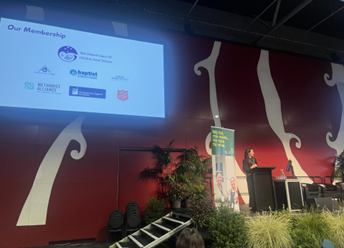
As part of the presentation we provided mini versions of Te Kōrero mō ngā Tamariki, which were well received by attendees.
Webinar: Strengthening Kinship Care
Join the Children’s Rights Alliance Aotearoa New Zealand CRAANZ) as they dive into the findings of Family for Every Child’s recent “Strengthening Kinship Care in Aotearoa New Zealand” study and indigenous approaches and practices in whānau care.
Strengthening Kinship Care: Upholding the Rights of Children and Their Families/Whānau
Monday 13 October, 12pm to 1:30pm
This webinar is focused on exploring children’s and indigenous rights in relation to kinship care and care by whānau, noting the UN’s urgent recommendations to New Zealand in 2023 regarding the Alternative Care of Children to:
- prevent and reduce the number of children removed from their family environment by providing assistance and support services to parents and caregivers
- strongly invest in measures developed and implemented by Māori children and communities to prevent their placement in out-of-home care, limit removal, when it is deemed necessary, to the shortest time possible
- provide them with adequate support while in alternative care, including access to mental health and therapeutic services, and
- facilitate reintegration into their families and communities.
Apprenticeship course discount
Careerforce is pleased to offer 50% off Whanāu, Community and Social Services apprenticeship enrolments from 1 September until 31 October 2025. Enrolments are now priced at just $1,000 (incl. GST)*, a saving of $1,000.
The Whānau, Community and Social Services Apprenticeship is a 21-month work-based programme designed to support an apprentice to develop the skills, knowledge, and behaviours required in community support roles to work alongside people, family, and whānau by using tools to support autonomy, identify goals, reduce vulnerability, and build resilience or achieve aspirations.
More information about the programme is available here.
*IMPORTANT: This offer applies to domestic learner enrolments only. To be eligible for promotional enrolment pricing, training agreements must be received by Careerforce no later than 31 October 2025.

What does the Lord require of you, but to act justly, to love mercy,
and to walk humbly with your God?
Micah 6:8
(New Heart English Bible translation)

